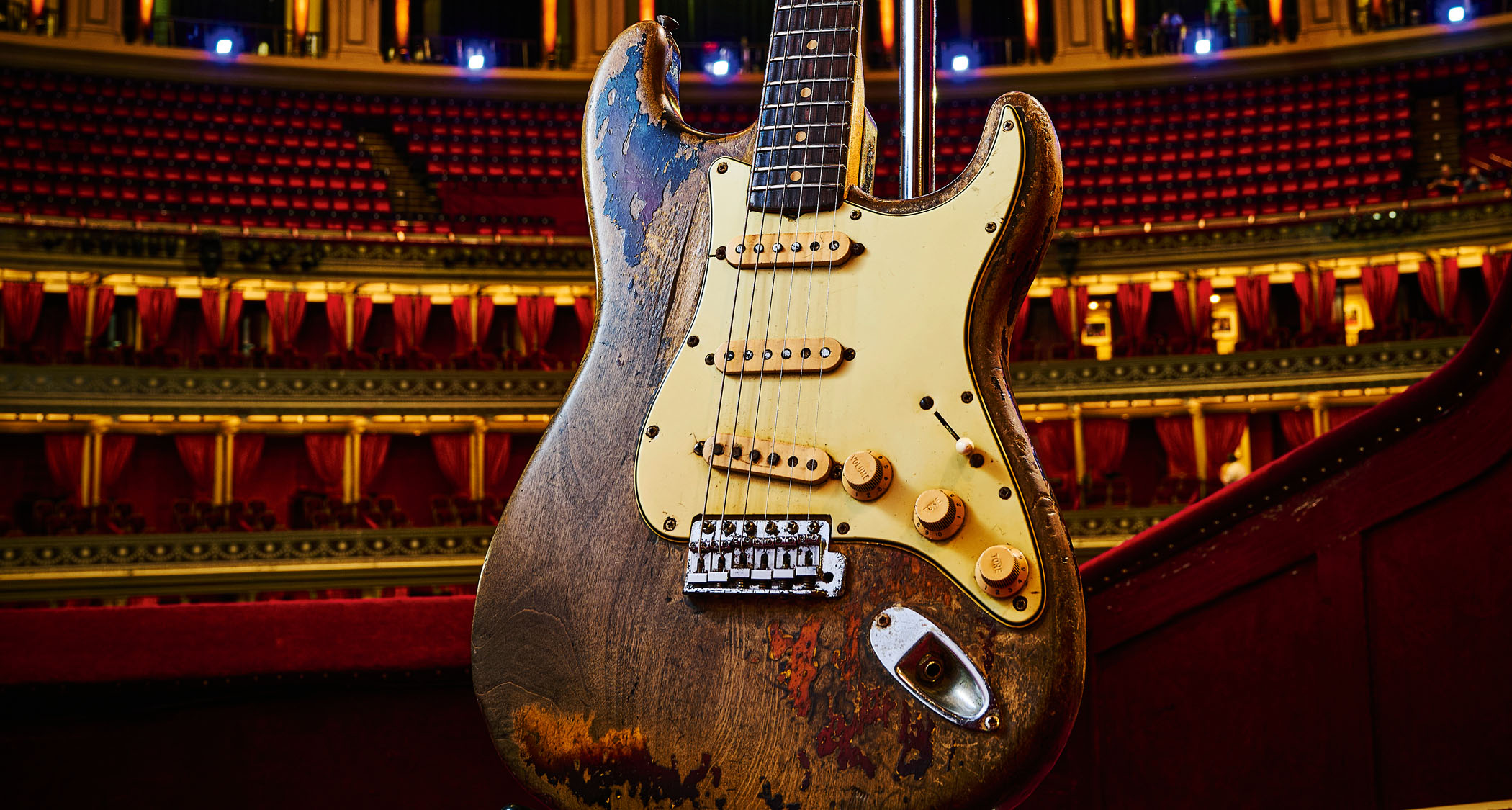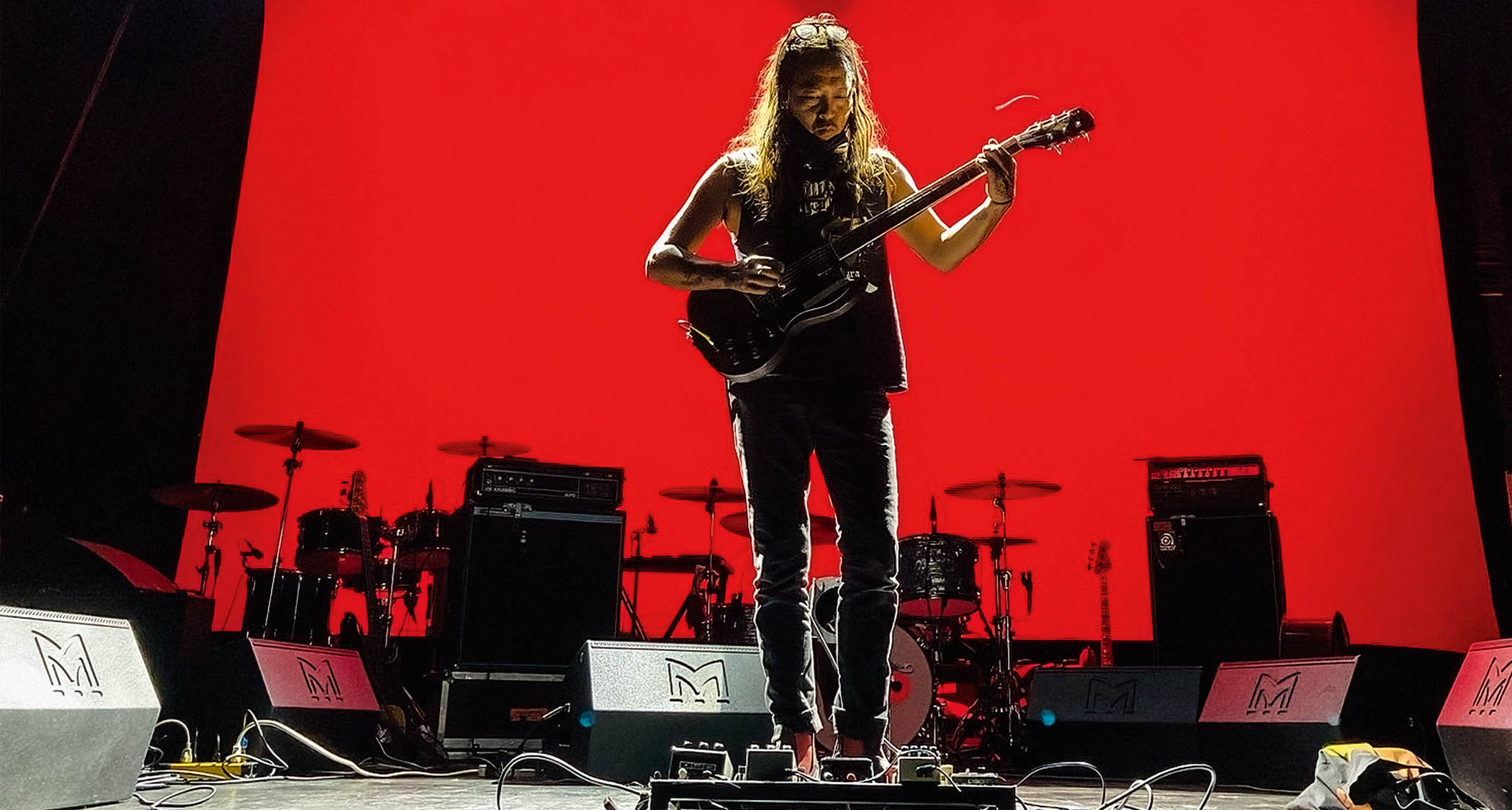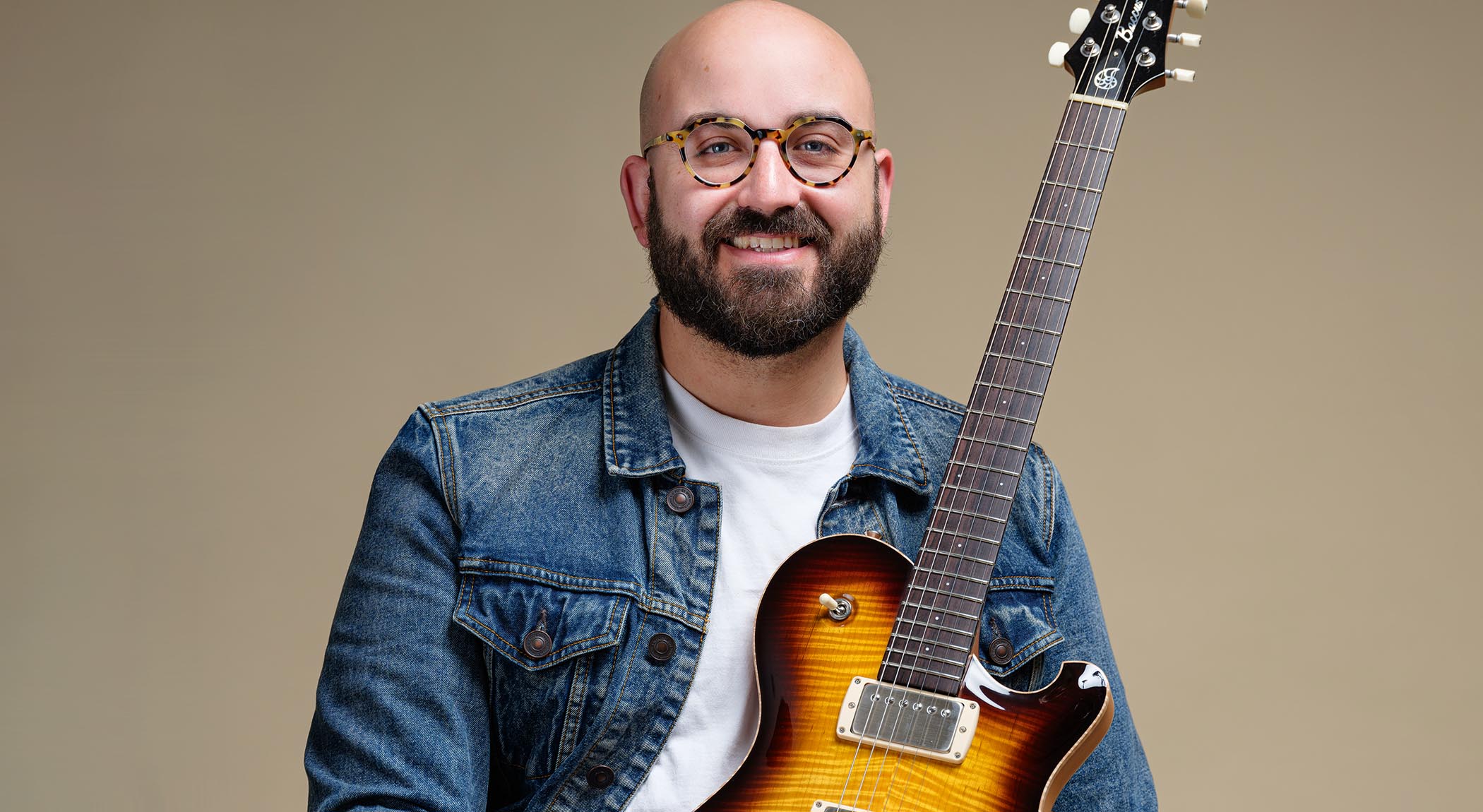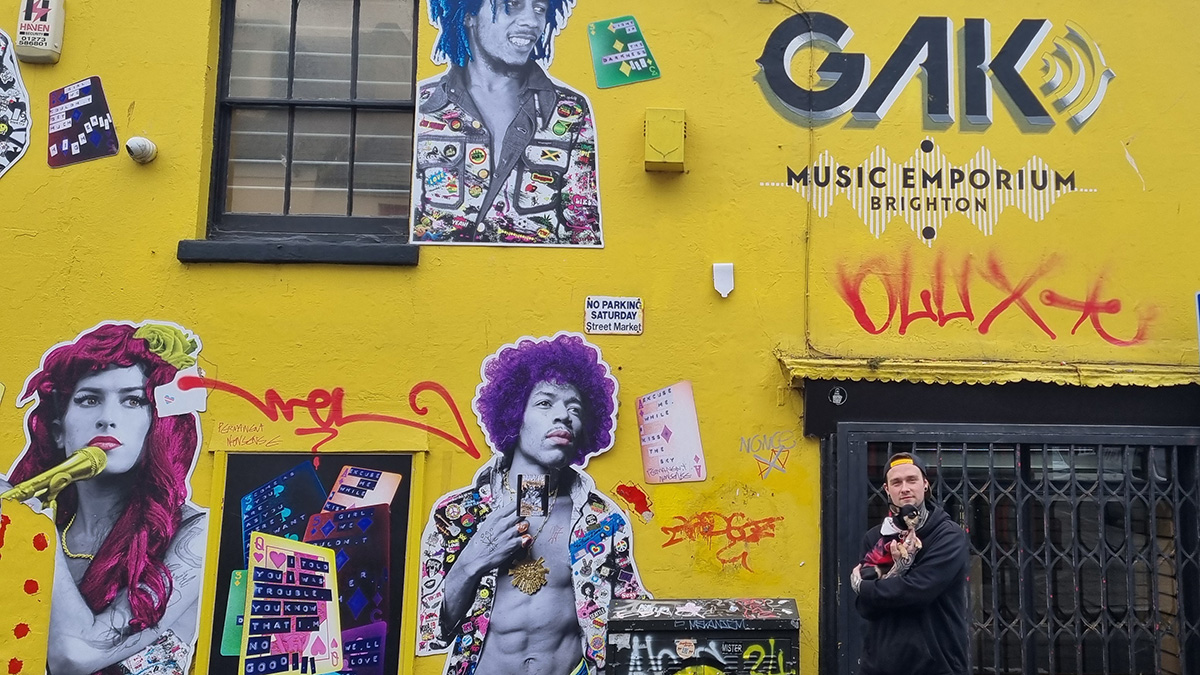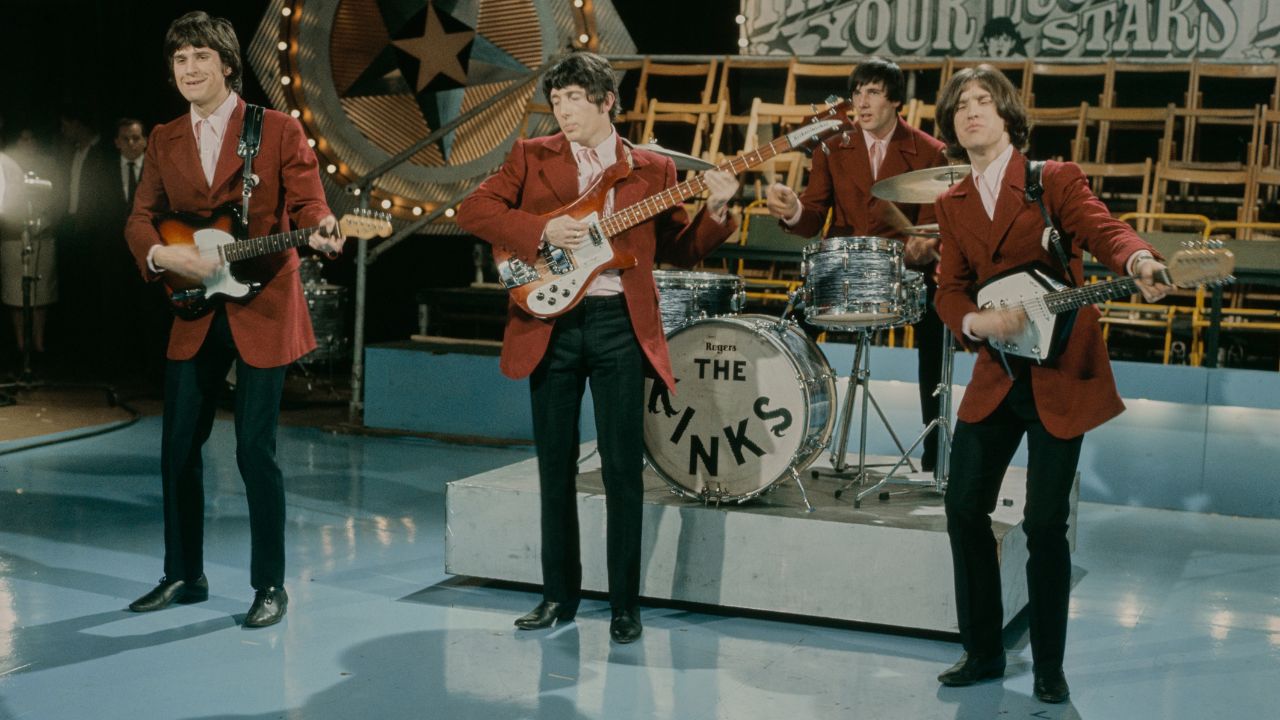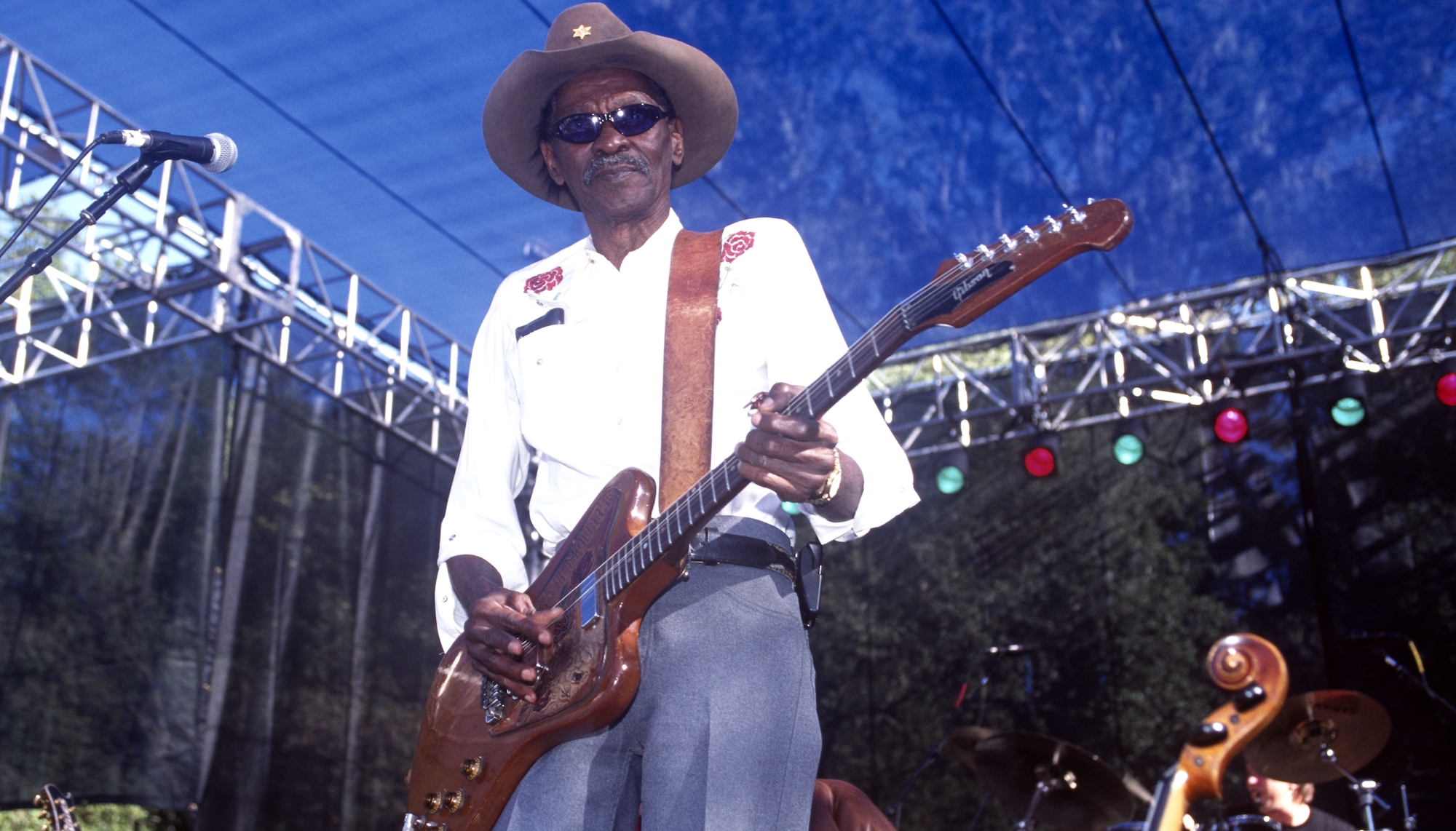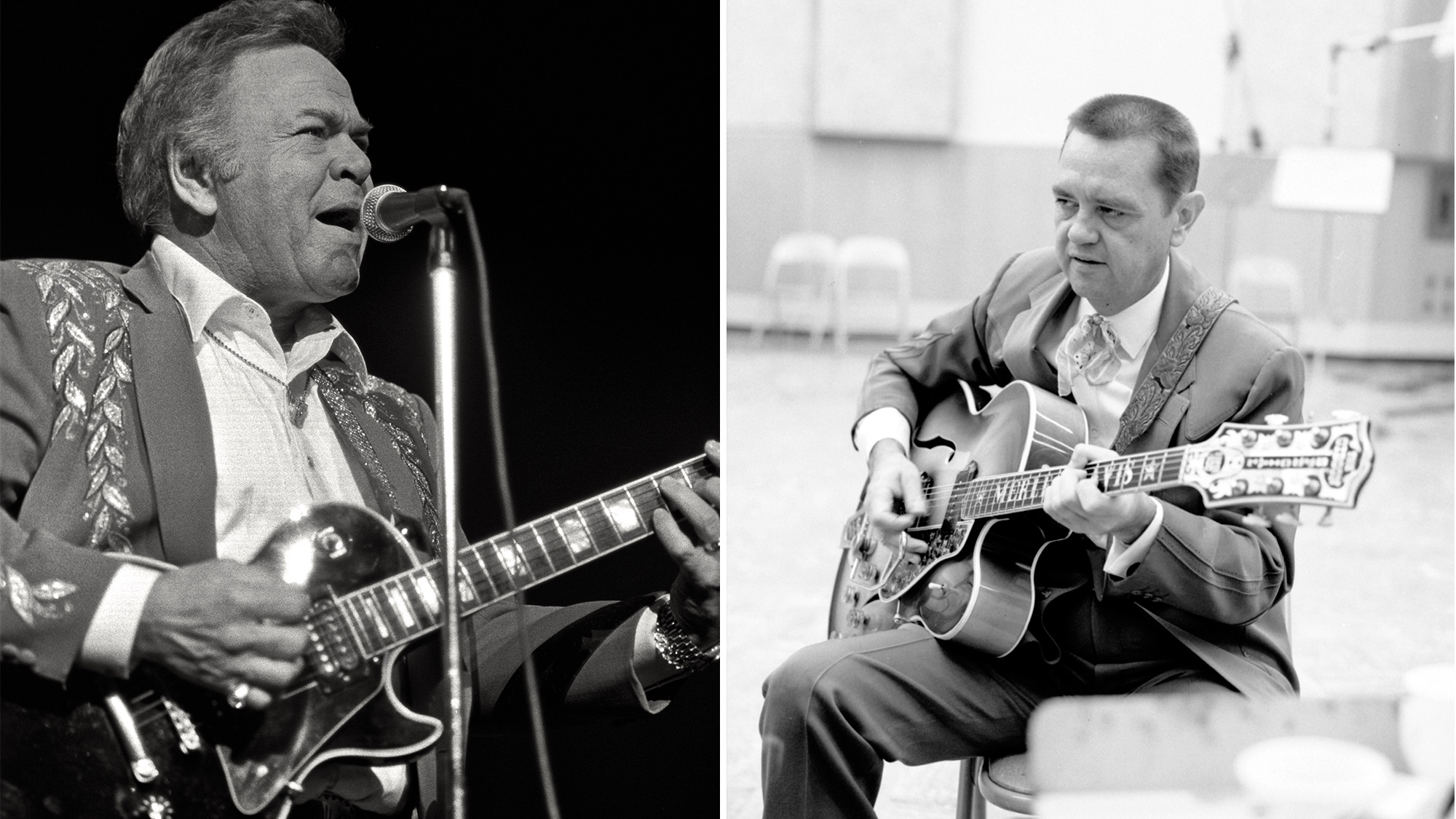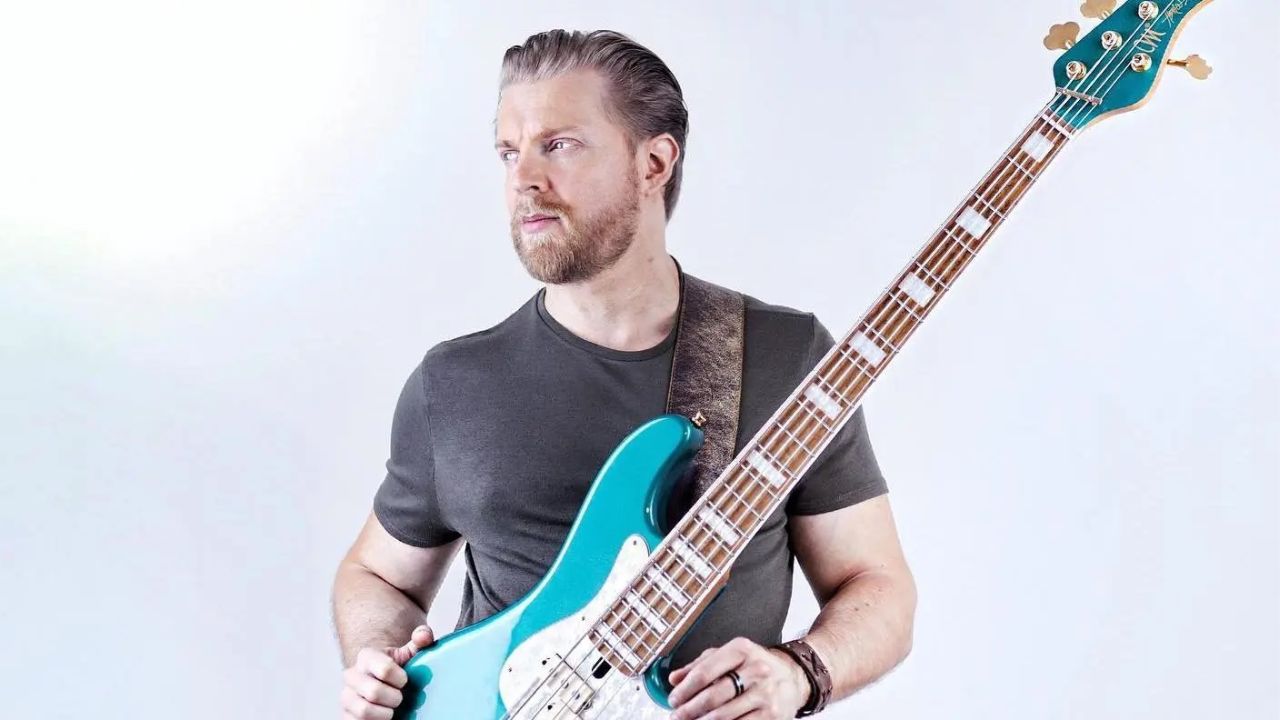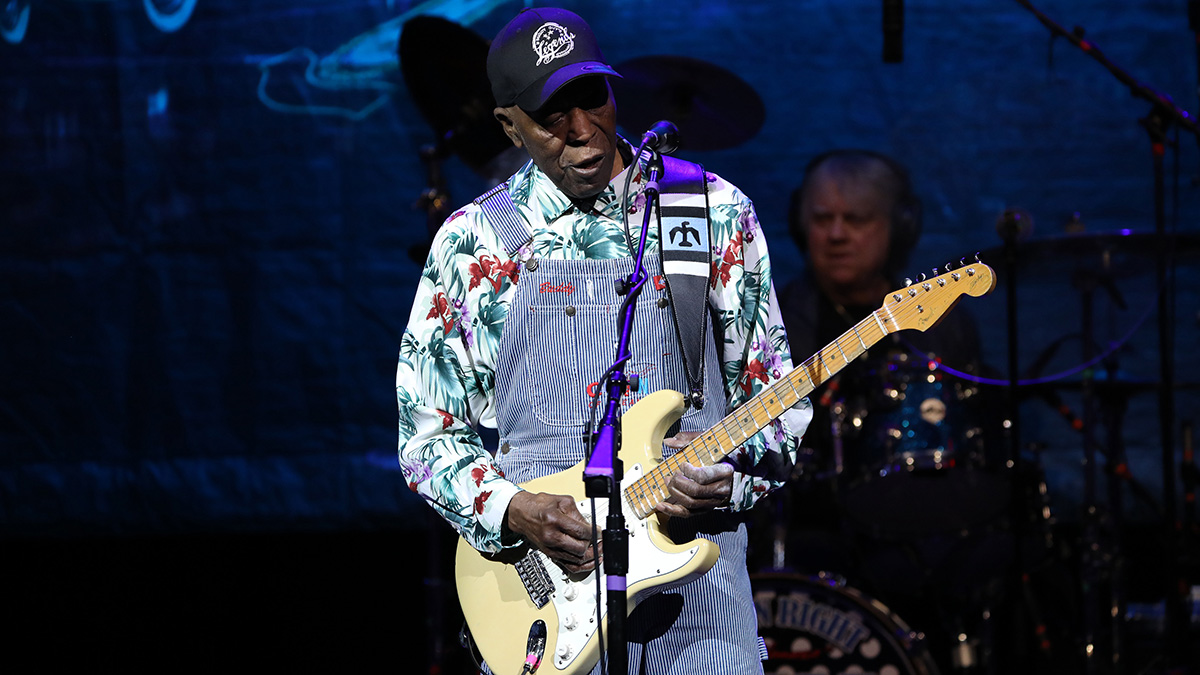Interview: Omar Rodriguez-Lopez Discusses the New Mars Volta Album, 'Noctourniquet'

It isn’t difficult for Omar Rodriguez-Lopez, guitarist, songwriter, producer and all-around conceptual mastermind for art-rock unit the Mars Volta, to define the role that music and creativity plays in his life. “It’s all there is,” he says simply. “I have no other agenda. I don’t want to rule the world, I don’t have a lust for money, I’m not obsessed with sex. Expressing myself through my art is everything. And I’ve been blessed with the opportunity to be able to do it for a living. So what the hell else should I spend my time doing?”
Indeed, even a cursory overview of Rodriguez-Lopez’s output over the past few years makes it hard to fathom how he has time to do much of anything else. Since the release of his band’s last album, 2009’s Octahedron, the 36-year-old musician has issued somewhere in the range of a dozen non–Mars Volta efforts, including one with friend and former Red Hot Chili Peppers guitarist John Frusciante, as well as a film, The Sentimental Engine Slayer, for which, in addition to scoring the soundtrack, he functioned as the writer, producer, director and lead actor.
It was also during this time that Rodriguez-Lopez managed to pull together Noctourniquet, the new Mars Volta record and the band’s sixth studio full-length. Working quickly, as is his nature, he wrote and recorded all the music for the album shortly after mixing Octahedron. “Basically, I finished that record, moved to Mexico, set up my studio and recorded about 30 songs in a two-week span,” he says. “Out of that batch of songs came Noctourniquet.” As he has for all past Mars Volta records, Rodriguez-Lopez composed all the music on his own before bringing in the rest of the band to record their parts. He then turned the finished tracks over to his partner in the Mars Volta, singer Cedric Bixler-Zavala, to add lyrics and vocals.
The result is both a continuation and a progression of the Mars Volta sound, which is at heart a polyrhythmic, celestial noise shot through with Bixler-Zavala’s frantic vocals and Rodriguez-Lopez’s kinetic, often heavily effected guitar riffs, squiggles and squeals. But the band also steps out into some less-traveled territory, evident in the skittering percussion and electro-rock riffs of leadoff cut “The Whip Hand,” the ambient pop-impressionism of “In Absentia” and the lurching junkyard dub of “The Malkin Jewel.”
Rodriguez-Lopez recently sat down with Guitar World to discuss the writing and recording of Noctourniquet, the unique manner in which the Mars Volta operates and his approach to and relationship with the guitar. He also opened up about the imminent reunion of his pre–Mars Volta band, At the Drive-In. After more than a decade apart, the beloved post-hardcore act, which also included Bixler-Zavala, will be playing select shows throughout 2012, including a headline appearance at this year’s Coachella Festival.
But while Rodriguez-Lopez is looking forward to playing with the reformed band, it’s unlikely that he will revisit past work for long. “I need to always be in the moment, or else whatever I’m working on starts to slip away and become useless to me,” he says. “Alfred Hitchcock once said, ‘You never finish making a film. You just decide to stop.’ That always stuck with me. I say, ‘I want to get it all out and then I’m done.’ And then I move on to the next thing.”
Though Noctourniquet is just seeing release now, you actually wrote and recorded all the music for the record several years ago. What led to the delay?
Get The Pick Newsletter
All the latest guitar news, interviews, lessons, reviews, deals and more, direct to your inbox!
I finished my part—meaning the production, the tracks, the music—in 2009, but then I handed it over to Cedric, and he took a while to do his part, which is the lyrics and vocals. What happened was, we got into this argument and he sort of came clean and basically said, “Listen, I can’t keep your pace. It’s too frantic to allow me to do what I do. The Mars Volta has always been your baby and it’s always been your way, but it’s just not me. I want to take my time with this record.”
And you were okay with that?
Yes, because fighting over music or money or anything isn’t worth a friendship. So I said, “Do your thing. I have plenty of other stuff to do.” I had a film coming out at the time, I was touring as a solo artist…I was busy. It was cool. But then a year and a half passed and nothing happened, so we had another argument, which was me calling him up and saying, “Hey, I’m all for you taking your time, but come on!” [laughs] And then Cedric took another nine months or so to get his stuff together. But when he said he was ready to do the vocals, I flew right out to L.A. Normally when we’re doing a record, everyone comes to where I am. But I got right on a plane and went to him. I just wanted to get the record done.
You work at an incredibly fast pace. In your opinion does the music benefit from being documented so quickly?
I think so, but that’s just my personal philosophy. The way I see it, you can be different in the morning even than you are that night—different feelings, different ideas, a different outlook. So imagine then how different you might be a couple weeks, months or years later. I try and stay away from that. Otherwise, you can just keep refining a batch of songs until you’re an old man. That’s why, while people can make fun of something like Chinese Democracy, I can see exactly how that happens. Your tastes are changing constantly, and you fall into this trap of saying, “I have to refine it. It could be better…” So in the case of Noctourniquet, it was just two weeks. I’d fly in each band member, show them exactly what I wanted, they’d record their parts and leave. Then I did the guitar tracks, edited everything down and gave it to Cedric.
The Mars Volta has always been an operation in which you more or less dictate to the other musicians in the band what they will be playing, correct?
Pretty much. Obviously, not with Cedric, who is my partner in this. But the other musicians know that’s the case. Every time I bring someone new into the band, I let that person know: “You’re not going to be writing anything, you’re going to be doing exactly what I want. Is that cool? Great. Welcome aboard.”
What is it about that setup that works for you?
Well, I should start by mentioning that it no longer works. Noctourniquet is the end of an era. I’m in a completely different space now, which is one where I want to work with other artists. And not only do I want it, but it has to happen. What I came to realize through my arguments with Cedric is that, first and foremost, he and I don’t collaborate. We present the Mars Volta as a collaboration, but in reality we’re two people working in a completely isolated manner, and then, as a producer, I gel our ideas together. That’s a partnership, but it’s not a collaboration. And that way of working began as a complete reaction to eight years of being in At the Drive-In, where everything was a collaboration and we had to have a fucking band meeting about every little thing. So when I started this band I said, “Fuck it. I’m gonna do my thing.” My musicians, they come into the studio, and once they record their part they’re done and I kick them out. No one in this band has ever attended a mix session. But this is not how bands operate. And a decade later I realize I’ve isolated myself from a lot of great people who have been in this band, and that I overworked them and basically just used them as puppets. That’s no way to live, and that’s nothing to be proud of.
To that end, you’ve been known to have your bandmates record their parts with little to no understanding of how what they were playing would fit into the song being tracked.
That was more or less the process up until Noctourniquet. But this time I recorded all the music myself, and then I brought in each musician separately, let them hear the song and had them retrack their respective instruments. This time they could actually hear everything in context.
What gear did you use on the album?
The truth is that I did this record so long ago that I really can’t remember. I think I mostly played a Telecaster, and I know my main amp was this small combo built by a friend of mine. And there was very simple miking—just an SM57 on the amp’s seven-inch speaker. For effects, the normal things were there, like my [Roland] Space Echo, and I know I used a Maestro Phase Shifter—the big silver one—a [Mu-Tron] Bi-Phase and a [Electro-Harmonix] POG. I also got into plug-ins, which I’ve been against for a long time but now they were like the new thing for me. I like some of the SoundToys stuff—the EchoBoy, the Decapitator and the Crystallizer. That opened up a whole new way of looking at things.
What is your attraction to pedals and manipulating the sound of a guitar?
It stems from my lack of sophistication on the instrument. It was a way to hide that. And it also comes from my own rejection of the instrument, because I didn't choose the guitar. I wanted to be a piano player, but I couldn’t get my ideas out fast enough on a piano. But when I grabbed the guitar, the ideas came out, so that was the vehicle. It was the immediate thing that helped me get to the point I was trying to make as quickly as possible. So I felt like I got stuck with it, and then it just turned into a thing where I was really moved by all the possibilities of the instrument once I stopped thinking about it in traditional terms. Not to mention the fact that, I mean, how old is the guitar? And there are only 12 notes you can play on it! When you think of it that way, it’s like, in terms of the guitar as a device, what else does technology offer? So you go into the gear, the pedals, the plug-ins and anything else that has been invented.
While you’re interested in gear, you don’t seem overly obsessive when it comes to the details of what you use.
People always ask me, “Are you one of those guys where the gear matters a lot or not at all?” And I say, “Both.” I love gear, because I’m a nerd. But the fact of the matter is it’s not about the gear—it’s about the person using it. It’s about their intention. It’s about their life. That’s what creates the music. I mean, we all know those people that obsess about, “Well, for this song Jimi had this Marshall and he used the round Fuzz Face and the Strat…but you have to play the Strat upside down because the extra length on the E string is what really gave him his sound…” But I say, no, the sound came from the fact that he had a tumultuous relationship with his father that never got resolved. The sound came from the fact that he had a brother who was in and out of jail. The sound came from the fact that he wanted to be accepted by the black community and he wasn’t. So you can get every piece of gear that was ever in Jimi’s hands, but the point is that you ain’t never gonna sound like him. Ever.
The sound comes from within.
Yes. It’s like with influences. People will ask me what music influenced a certain song or album, but really the influence is whatever is going on in my life at the time it was written. For Noctourniquet, I had just moved back to Mexico, so that was an influence. I was also reading a biography on [the late Puerto Rican professional baseball player] Roberto Clemente, so that was an influence. Whatever music I’m listening to, that’s barely scratching the surface. It’s really about what’s up between me and my dad, or me and my mom, or this thing that happened with my brother, or something that’s going on between me and Cedric. That’s the influence.
You’ve been playing music with Cedric for roughly 20 years. How would you describe your relationship?
It’s still a mystery to me. We have this crazy connection where if you start to question it too much, you kill it. So I’ve always stayed away from trying to understand it. But then other people sort of attach their meaning to it. When I first left At the Drive-In and he came with me and we started doing the Mars Volta, the rumor was that we were lovers and had to leave the other guys and go off on our own. So you can’t really control what it is that other people will perceive about any relationship that you have. But the fact is that, creatively, there’s this insane fire between us, and it is what it is.
What led you and Cedric to reunite with your former bandmates in At the Drive-In this year?
For me, I spent 10 years saying, “Over my dead body. I’ll never play with those guys again.” But things change, not least of all my attitude. About three years ago, the rest of the guys came to my house in Mexico, and we all got to say what we had to say. I apologized for breaking up the band, and they apologized for whatever they felt they needed to apologize for. So, cool. We’re five grown men now. And with Coachella, they put out an offer for us to reunite and play the festival every single year. So, finally, it became a reality.
There must be a financial component to it, as well.
Of course. I’d be a fool, I’d be an asshole, to sit here and talk to you and say, “Money has nothing to do with it, man.” I’d be insulting your intelligence. And I know how that feels from over the years of liking bands and hearing them say money has nothing to do with it. Really? Then why don’t you play for free? So there is money there, but it’s always been there. But it never led us to do it before, and it didn’t lead us here now.
Looking back to your time with At the Drive-In and all you’ve done since with the Mars Volta and on your own, do you feel that your relationship to creating and playing music has changed at all?
Well, I hear some of those old songs now and it’s interesting to me to see how my mind was working at the time. I feel like I was looking at everything as sort of an end. That might be different now. But in general, the goal has only ever been to express myself, to find something therapeutic for myself, and to do it in a way that is constructive and not destructive. That hasn’t changed. So the drive is certainly still the same.
“Stevie came to my 5th birthday and gave me a pawnshop Harmony. It didn’t have a gig bag, it had two paper grocery bags on either end”: Tyrone Vaughan descends from blues greatness – and SRV helped him start his guitar journey early
“Live right up to the last breath and stay positive about the world, your family and the environment you live in”: Mike Peters, frontman of the Welsh band, The Alarm, has died aged 66
